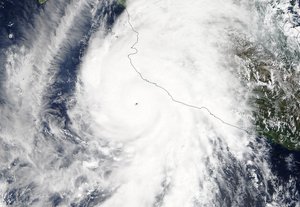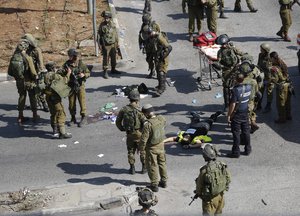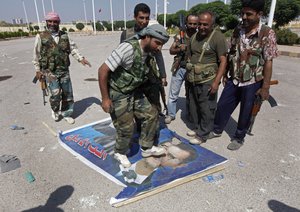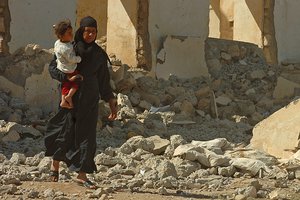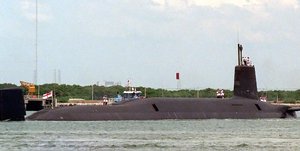











- Loading...

-
Putin and a new pan Slavism
Putin and a new pan Slavism -
Putin and a new pan-Slavism
Putin and a new pan-SlavismPutin and a new pan-Slavism
More at http://therealnews.com Eric Margolis comments on Putin and Russia's Duma elections Wednesday December 5th, 2007 As contributing editor for The Americ... -
Pan-Slavism Panslawizm Панславизм Panslavizma ПанСлависм Panslavisme
Pan-Slavism Panslawizm Панславизм Panslavizma ПанСлависм PanslavismePan-Slavism Panslawizm Панславизм Panslavizma ПанСлависм Panslavisme
Pan-Slavism is not a form of domination of one over the other . Pan-Slavism is the result of what we are. ○▭▭▭▭▭▭ஜ۩۞۩ஜ▭▭▭▭▭▭○ !!!!PEACE BETWEEN THE SLAVS!!!!... -
Pan-Slavism for children
Pan-Slavism for childrenPan-Slavism for children
First Pan-Slav Congress, Prague, 1848. -
Russian Nationalism & Pan-Slavism
Russian Nationalism & Pan-SlavismRussian Nationalism & Pan-Slavism
http://www.youtube.com/user/PowerRossiya Russian Nationalism and Pan-Slavism in Russia is a term referring to a Russian form of nationalism and Indo European... -
Słowianie / Славяне / Slavs / Panslawizm / Панславизм / Pan-Slavism
Słowianie / Славяне / Slavs / Panslawizm / Панславизм / Pan-SlavismSłowianie / Славяне / Slavs / Panslawizm / Панславизм / Pan-Slavism
o Music: Honor - Znak Orła. -
Pan-Slavism Meaning
Pan-Slavism MeaningPan-Slavism Meaning
Video shows what Pan-Slavism means. A movement aimed at uniting all the Slavic peoples.. Pan-Slavism Meaning. How to pronounce, definition audio dictionary. How to say Pan-Slavism. Powered by MaryTTS, Wiktionary -
Slavia Slavija Slawia Славия and the European Union / Slavic world / Slavic europe
Slavia Slavija Slawia Славия and the European Union / Slavic world / Slavic europeSlavia Slavija Slawia Славия and the European Union / Slavic world / Slavic europe
Pan-Slavism is not a form of domination of one over the other . ○▭▭▭▭▭▭ஜ۩۞۩ஜ▭▭▭▭▭▭○ !!!!PEACE BETWEEN THE SLAVS!!!! ○▭▭▭▭▭▭ஜ۩۞۩ஜ▭▭▭▭▭▭○ The wars, the problem... -
Pan-Slavism - Hej, Slováci!
Pan-Slavism - Hej, Slováci!Pan-Slavism - Hej, Slováci!
-
Le Panslavisme
Le PanslavismeLe Panslavisme
The pan-Slav ... the Pan-Slavic ... What is Pan-Slavism? Some know the pan-Turkism or Pan-Germanism, both mentioned above to twentieth centuries, but know th... -
Slavic hero Slavic warrior Slavic soldier Slavic power Slavic unity SLAVA СЛАВА SŁAWA SLÁVA
Slavic hero Slavic warrior Slavic soldier Slavic power Slavic unity SLAVA СЛАВА SŁAWA SLÁVASlavic hero Slavic warrior Slavic soldier Slavic power Slavic unity SLAVA СЛАВА SŁAWA SLÁVA
Pan-Slavism is not a form of domination of one over the other . Pan-Slavism is the result of what we are. Pan-Slavism was a movement that advocates the unifi... -
Kievan Rus': 9/11/15-Joaquin Flores~novorossiya, putin, immigration, P.C., identity, chauvisnism
Kievan Rus': 9/11/15-Joaquin Flores~novorossiya, putin, immigration, P.C., identity, chauvisnismKievan Rus': 9/11/15-Joaquin Flores~novorossiya, putin, immigration, P.C., identity, chauvisnism
Kievan Rus': 9/11/15-Joaquin Flores~novorossiya, putin, immigration, political correctness, authoritarianism, russophobia, White/Red/Brown alliance in Russia & Novorossiya, national identity, chauvinism, secession, pan-slavism, pan-eurasianism, pan-americanism, localism/regionism, classical federalism, among other topics -
The Song of Volga Boatmen - Best Quality!
The Song of Volga Boatmen - Best Quality!The Song of Volga Boatmen - Best Quality!
The Song og Volga Boatmen, performed by Alexandrov's Red Army Choir. In the Picture - Slavic God Perun - lord of lightnings and thunders, widely known as a s... -
Kievan Rus': 9/15/15-Eugene Monsalvat 1of2~Euro/Russian rival nationalisms, historical revisionism
Kievan Rus': 9/15/15-Eugene Monsalvat 1of2~Euro/Russian rival nationalisms, historical revisionismKievan Rus': 9/15/15-Eugene Monsalvat 1of2~Euro/Russian rival nationalisms, historical revisionism
Kievan Rus': 9/15/15-Eugene Monsalvat 1of2~USSR , Third Reich, Soviet Nationalism, National Bolshevism, National Communism, Strasserism, left-Nazism, Red Fascism, historical revisionism, pan-nationalism, Eurasianism, Pan-Russianism, Pan-Slavism, Banderaism, Anglo-Germanism
-
Putin and a new pan Slavism
Putin and a new pan SlavismPutin and a new pan Slavism
-
Putin and a new pan-Slavism
Putin and a new pan-SlavismPutin and a new pan-Slavism
More at http://therealnews.com Eric Margolis comments on Putin and Russia's Duma elections Wednesday December 5th, 2007 As contributing editor for The Americ... -
Pan-Slavism Panslawizm Панславизм Panslavizma ПанСлависм Panslavisme
Pan-Slavism Panslawizm Панславизм Panslavizma ПанСлависм PanslavismePan-Slavism Panslawizm Панславизм Panslavizma ПанСлависм Panslavisme
Pan-Slavism is not a form of domination of one over the other . Pan-Slavism is the result of what we are. ○▭▭▭▭▭▭ஜ۩۞۩ஜ▭▭▭▭▭▭○ !!!!PEACE BETWEEN THE SLAVS!!!!... -
Pan-Slavism for children
Pan-Slavism for childrenPan-Slavism for children
First Pan-Slav Congress, Prague, 1848. -
Russian Nationalism & Pan-Slavism
Russian Nationalism & Pan-SlavismRussian Nationalism & Pan-Slavism
http://www.youtube.com/user/PowerRossiya Russian Nationalism and Pan-Slavism in Russia is a term referring to a Russian form of nationalism and Indo European... -
Słowianie / Славяне / Slavs / Panslawizm / Панславизм / Pan-Slavism
Słowianie / Славяне / Slavs / Panslawizm / Панславизм / Pan-SlavismSłowianie / Славяне / Slavs / Panslawizm / Панславизм / Pan-Slavism
o Music: Honor - Znak Orła. -
Pan-Slavism Meaning
Pan-Slavism MeaningPan-Slavism Meaning
Video shows what Pan-Slavism means. A movement aimed at uniting all the Slavic peoples.. Pan-Slavism Meaning. How to pronounce, definition audio dictionary. How to say Pan-Slavism. Powered by MaryTTS, Wiktionary -
Slavia Slavija Slawia Славия and the European Union / Slavic world / Slavic europe
Slavia Slavija Slawia Славия and the European Union / Slavic world / Slavic europeSlavia Slavija Slawia Славия and the European Union / Slavic world / Slavic europe
Pan-Slavism is not a form of domination of one over the other . ○▭▭▭▭▭▭ஜ۩۞۩ஜ▭▭▭▭▭▭○ !!!!PEACE BETWEEN THE SLAVS!!!! ○▭▭▭▭▭▭ஜ۩۞۩ஜ▭▭▭▭▭▭○ The wars, the problem... -
Pan-Slavism - Hej, Slováci!
Pan-Slavism - Hej, Slováci!Pan-Slavism - Hej, Slováci!
-
Le Panslavisme
Le PanslavismeLe Panslavisme
The pan-Slav ... the Pan-Slavic ... What is Pan-Slavism? Some know the pan-Turkism or Pan-Germanism, both mentioned above to twentieth centuries, but know th... -
Slavic hero Slavic warrior Slavic soldier Slavic power Slavic unity SLAVA СЛАВА SŁAWA SLÁVA
Slavic hero Slavic warrior Slavic soldier Slavic power Slavic unity SLAVA СЛАВА SŁAWA SLÁVASlavic hero Slavic warrior Slavic soldier Slavic power Slavic unity SLAVA СЛАВА SŁAWA SLÁVA
Pan-Slavism is not a form of domination of one over the other . Pan-Slavism is the result of what we are. Pan-Slavism was a movement that advocates the unifi... -
Kievan Rus': 9/11/15-Joaquin Flores~novorossiya, putin, immigration, P.C., identity, chauvisnism
Kievan Rus': 9/11/15-Joaquin Flores~novorossiya, putin, immigration, P.C., identity, chauvisnismKievan Rus': 9/11/15-Joaquin Flores~novorossiya, putin, immigration, P.C., identity, chauvisnism
Kievan Rus': 9/11/15-Joaquin Flores~novorossiya, putin, immigration, political correctness, authoritarianism, russophobia, White/Red/Brown alliance in Russia & Novorossiya, national identity, chauvinism, secession, pan-slavism, pan-eurasianism, pan-americanism, localism/regionism, classical federalism, among other topics -
The Song of Volga Boatmen - Best Quality!
The Song of Volga Boatmen - Best Quality!The Song of Volga Boatmen - Best Quality!
The Song og Volga Boatmen, performed by Alexandrov's Red Army Choir. In the Picture - Slavic God Perun - lord of lightnings and thunders, widely known as a s... -
Kievan Rus': 9/15/15-Eugene Monsalvat 1of2~Euro/Russian rival nationalisms, historical revisionism
Kievan Rus': 9/15/15-Eugene Monsalvat 1of2~Euro/Russian rival nationalisms, historical revisionismKievan Rus': 9/15/15-Eugene Monsalvat 1of2~Euro/Russian rival nationalisms, historical revisionism
Kievan Rus': 9/15/15-Eugene Monsalvat 1of2~USSR , Third Reich, Soviet Nationalism, National Bolshevism, National Communism, Strasserism, left-Nazism, Red Fascism, historical revisionism, pan-nationalism, Eurasianism, Pan-Russianism, Pan-Slavism, Banderaism, Anglo-Germanism -
March of the Slavs
March of the SlavsMarch of the Slavs
https://www.facebook.com/PanSlavizmus Pan-Slavism nowadays is not about Russian domination, it's about equality and unification of Slavs for common purpose - peace and prosperity. It's about unifying Slavic people, we are people with the same mentality, language and blood. We respect our ancestors and our culture. Our land, our rules! Slava! -
AP Euro: Russian Politics 1850-1914
AP Euro: Russian Politics 1850-1914AP Euro: Russian Politics 1850-1914
Key terms/people: Alexander II westernizers slavophiles mir zemstvos duma People's Will Russification Sergei Witte Pan-Slavism Russo-Turkish War Nihilists Russo-Japanese War Bloody Sunday Massacre October Manifesto Duma Fundamental Laws -
Katherine Younger lecture / Лекція Кетрін Юнґер
Katherine Younger lecture / Лекція Кетрін ЮнґерKatherine Younger lecture / Лекція Кетрін Юнґер
Katherine Younger. Constructing Slavic Europe: Varieties of Pan-Slavism and the Idea of Europe. Lecture within The School of Abducted Europe at The School of Kyiv - Kyiv Biennial 2015 on the 29th of September. / Кейт Янґер. Конструювання слов’янської Європи: варіації пан-славізму та ідеї Європи. Лекція в рамках Школи викраденої Європи на Київській бієнале 2015 Київська школа 29 вересня 2015. -
Modernity Pt I Whispers of Cataclysm
Modernity Pt I Whispers of CataclysmModernity Pt I Whispers of Cataclysm
Part I discusses the long term consequences of Realpolitik and European Imperialism. Topics discussed: The Bismarckian System, Alliances, Pan-Slavism, and the Balkan Crisis. -
23rd July 1914: Austria-Hungary presents ultimatum to Serbia
23rd July 1914: Austria-Hungary presents ultimatum to Serbia23rd July 1914: Austria-Hungary presents ultimatum to Serbia
On the 23rd July 1914, Austria-Hungary issued an ultimatum to Serbia specifically designed to be rejected and lead to war between the two countries. The ultimatum was delivered at 6pm by the Austro-Hungarian ambassador to Belgrade, with a deadline of 48 hours within which the Serbian government had to respond. They accepted all but one of the numerous demands, which led Austria-Hungary to declare war three days later on 28th July. Austria-Hungary had been concerned about the growing power of Serbia, and was keen to find a way to weaken the government and stop it taking over the Southern Slavic populations of the northern Balkans, and especia -
70's cop revival and the mexian
70's cop revival and the mexian70's cop revival and the mexian
Pan-Slavism was a movement in the mid 19th century aimed at unity of all the Slavic peoples. The main focus was in the Balkans where South Slavs had been rul... -
Panslavism Meaning
Panslavism MeaningPanslavism Meaning
Video shows what panslavism means. Pan-Slavism. Panslavism Meaning. How to pronounce, definition audio dictionary. How to say panslavism. Powered by MaryTTS, Wiktionary -
Panslavist Meaning
Panslavist MeaningPanslavist Meaning
Video shows what Panslavist means. One who favours Pan-Slavism.. Panslavist Meaning. How to pronounce, definition audio dictionary. How to say Panslavist. Powered by MaryTTS, Wiktionary -
How to Pronounce Pan-Slavist
How to Pronounce Pan-SlavistHow to Pronounce Pan-Slavist
Learn how to say Pan-Slavist correctly with EmmaSaying's "how do you pronounce" free tutorials. http://www.emmasaying.com/ Take a look at my comparison tutorials here: https://www.youtube.com/user/EmmaSaying/videos?view=1 Subscribe to my channel here: https://www.youtube.com/user/EmmaSaying

Putin and a new pan Slavism
- Order: Reorder
- Duration: 8:31
- Updated: 02 Sep 2014
- author: schmidt wolles
- published: 21 Jan 2013
- views: 242
- author: schmidt wolles

Putin and a new pan-Slavism
- Order: Reorder
- Duration: 8:30
- Updated: 06 Jun 2014
- author: TheRealNews
- published: 05 Dec 2007
- views: 17026
- author: TheRealNews

Pan-Slavism Panslawizm Панславизм Panslavizma ПанСлависм Panslavisme
- Order: Reorder
- Duration: 2:03
- Updated: 28 Aug 2014
- author: SlavicPatriota
- published: 20 Aug 2011
- views: 8271
- author: SlavicPatriota

Pan-Slavism for children
- Order: Reorder
- Duration: 1:09
- Updated: 01 Aug 2014
- author: pan slavjanin
- published: 07 Sep 2013
- views: 264
- author: pan slavjanin

Russian Nationalism & Pan-Slavism
- Order: Reorder
- Duration: 1:33
- Updated: 01 Aug 2014
- author: PowerRossiya
- published: 03 May 2012
- views: 2690
- author: PowerRossiya

Słowianie / Славяне / Slavs / Panslawizm / Панславизм / Pan-Slavism
- Order: Reorder
- Duration: 2:01
- Updated: 28 Jul 2014
- author: RussianPnwer
- published: 23 Oct 2008
- views: 126659
- author: RussianPnwer

Pan-Slavism Meaning
- Order: Reorder
- Duration: 0:26
- Updated: 19 Apr 2015
- published: 19 Apr 2015
- views: 3

Slavia Slavija Slawia Славия and the European Union / Slavic world / Slavic europe
- Order: Reorder
- Duration: 2:00
- Updated: 04 Sep 2014
- author: SlavicPatriota
- published: 22 May 2011
- views: 14042
- author: SlavicPatriota

Pan-Slavism - Hej, Slováci!
- Order: Reorder
- Duration: 0:06
- Updated: 04 Feb 2014
- author: Eduard Tykhenko
- published: 15 May 2013
- views: 174
- author: Eduard Tykhenko

Le Panslavisme
- Order: Reorder
- Duration: 7:48
- Updated: 04 Aug 2014
- author: SlavicPatriota
- published: 20 Dec 2011
- views: 2351
- author: SlavicPatriota

Slavic hero Slavic warrior Slavic soldier Slavic power Slavic unity SLAVA СЛАВА SŁAWA SLÁVA
- Order: Reorder
- Duration: 8:36
- Updated: 05 Sep 2014
- author: SlavicPatriota
- published: 22 May 2011
- views: 99388
- author: SlavicPatriota

Kievan Rus': 9/11/15-Joaquin Flores~novorossiya, putin, immigration, P.C., identity, chauvisnism
- Order: Reorder
- Duration: 77:01
- Updated: 11 Sep 2015
- published: 11 Sep 2015
- views: 34

The Song of Volga Boatmen - Best Quality!
- published: 08 Jun 2011
- views: 14077
- author: YuriPRIME

Kievan Rus': 9/15/15-Eugene Monsalvat 1of2~Euro/Russian rival nationalisms, historical revisionism
- Order: Reorder
- Duration: 41:04
- Updated: 16 Sep 2015
- published: 16 Sep 2015
- views: 16

March of the Slavs
- Order: Reorder
- Duration: 1:11
- Updated: 20 Jul 2015
- published: 20 Jul 2015
- views: 436

AP Euro: Russian Politics 1850-1914
- Order: Reorder
- Duration: 22:15
- Updated: 01 Feb 2015
- published: 01 Feb 2015
- views: 0

Katherine Younger lecture / Лекція Кетрін Юнґер
- Order: Reorder
- Duration: 49:00
- Updated: 14 Oct 2015
- published: 14 Oct 2015
- views: 4

Modernity Pt I Whispers of Cataclysm
- Order: Reorder
- Duration: 7:55
- Updated: 05 Mar 2015
- published: 05 Mar 2015
- views: 64

23rd July 1914: Austria-Hungary presents ultimatum to Serbia
- Order: Reorder
- Duration: 2:47
- Updated: 23 Jul 2015
- published: 23 Jul 2015
- views: 0

70's cop revival and the mexian
- published: 26 Apr 2007
- views: 596
- author: ih8flys

Panslavism Meaning
- Order: Reorder
- Duration: 0:24
- Updated: 19 May 2015
- published: 19 May 2015
- views: 1

Panslavist Meaning
- Order: Reorder
- Duration: 0:25
- Updated: 24 May 2015
- published: 24 May 2015
- views: 0

How to Pronounce Pan-Slavist
- Order: Reorder
- Duration: 0:16
- Updated: 28 May 2014
- published: 28 May 2014
- views: 0
-
Aleksandr Solzhenitsyn: Bio, Quotes, Books, Essays, Facts, Life, Education (1998)
Aleksandr Solzhenitsyn: Bio, Quotes, Books, Essays, Facts, Life, Education (1998)Aleksandr Solzhenitsyn: Bio, Quotes, Books, Essays, Facts, Life, Education (1998)
Aleksandr Isayevich Solzhenitsyn (/ˌsoʊlʒəˈniːtsɪn, ˌsɔːl-/; Russian: Алекса́ндр Иса́евич Солжени́цын, pronounced [ɐlʲɪˈksandr ɪˈsaɪvʲɪtɕ səlʐɨˈnʲitsɨn]; 11 December 1918 – 3 August 2008) was a Russian novelist, historian, and critic of Soviet totalitarianism. He helped to raise global awareness of the gulag and the Soviet Union's forced labor camp system. While his writings were long suppressed in the USSR, he wrote many books, most notably The Gulag Archipelago, One Day in the Life of Ivan Denisovich, August 1914 and Cancer Ward. Solzhenitsyn was awarded the Nobel Prize in Literature in 1970, "for the ethical force with which he has pursued -
Pan nationalism
Pan nationalismPan nationalism
Explaining what pan nationalism is, why I believe in it, and the obstacles that it faces -
14 PART 2 THE PRESENT PAN GERMANISM
14 PART 2 THE PRESENT PAN GERMANISM14 PART 2 THE PRESENT PAN GERMANISM
-
uNAVSA 2006 Workshop - Pan-Ethnic Coalitions
uNAVSA 2006 Workshop - Pan-Ethnic CoalitionsuNAVSA 2006 Workshop - Pan-Ethnic Coalitions
Jane Kim, Tony Vân Nguyễn talk about networking with Asian Pacific American groups in addition to Vietnamese American groups at the 3rd annual uNAVSA 2006 Co... -
Demographics of Croatia
Demographics of CroatiaDemographics of Croatia
The demographic characteristics of the population of Croatia are known through censuses, normally conducted in ten-year intervals and analysed by various statistical bureaus since the 1850s. The Croatian Bureau of Statistics has performed this task since the 1990s. The latest census in Croatia was performed in April 2011. The permanent population of Croatia at the 2011 census had reached 4.29 million. The population density is 75.8 inhabitants per square kilometre, and the overall life expectancy in Croatia at birth is 75.7 years. The population rose steadily (with the exception of censuses taken following the two world wars) from 2.1 million -
Vladimir Putin: Road to power
Vladimir Putin: Road to powerVladimir Putin: Road to power
Dozens of books have been published to answer the question "Who is Mr. Putin?". Leaving the post of president with rating over 70 percent, Vladimir Putin is ... -
Victoria 2, Let's play Serbia(Yugoslavia) part 8
Victoria 2, Let's play Serbia(Yugoslavia) part 8Victoria 2, Let's play Serbia(Yugoslavia) part 8
We will find till the end against UK,Austria,Ottomans and others! For the glory of South Slavs! -
Eric Margolis: The US Created a Crisis in Georgia
Eric Margolis: The US Created a Crisis in GeorgiaEric Margolis: The US Created a Crisis in Georgia
The US-backed regime in Georgia disregarded the principle of self-determination and invaded the Russian population of So. Ossetia using Israeli arms. -
Real Putin - Настоящий Путин
Real Putin - Настоящий ПутинReal Putin - Настоящий Путин
-
A History of the Boycott: Economic Nationalism in Russian Poland, 1880-1914
A History of the Boycott: Economic Nationalism in Russian Poland, 1880-1914A History of the Boycott: Economic Nationalism in Russian Poland, 1880-1914
"This history of Łódź is also a history of Russian imperialism," noted Yedida Kanfer, Title VIII-Supported Research Scholar, Kennan Institute, at a 5 March 2... -
9 Moscow Third Rome. III Christian Movie Festival in Köln
9 Moscow Third Rome. III Christian Movie Festival in Köln9 Moscow Third Rome. III Christian Movie Festival in Köln
The film festival participant. 1.11.2014. Russian language. -
Afganistan is about an Oil Pipelline
Afganistan is about an Oil PipellineAfganistan is about an Oil Pipelline
Journalist Eric Margolis on the potential for war between US and Pakistan. -
Snění o Rusku. České rusofilství a panslavismus.
Snění o Rusku. České rusofilství a panslavismus.Snění o Rusku. České rusofilství a panslavismus.
Probuďme se konečně !!! Hlavně nezapomínejme co se stalo 17.9.1939 !!! -
Ю. KЛИМАКОВ. СОСТ. КНИГ. "ГЕОЛОЛИТИКА ПАНСЛАВИЗМА".
Ю. KЛИМАКОВ. СОСТ. КНИГ. "ГЕОЛОЛИТИКА ПАНСЛАВИЗМА".Ю. KЛИМАКОВ. СОСТ. КНИГ. "ГЕОЛОЛИТИКА ПАНСЛАВИЗМА".
ЮРИЙ KЛИМАКОВ. ВСТРЕЧА С СОСТАВИТЕЛЕМ КНИГИ "ГЕОЛОЛИТИКА ПАНСЛАВИЗМА". 02.08.2010 Источник: http://www.rusinst.ru/ -
Revealing Russia III: Russian nationalism in the Soviet period
Revealing Russia III: Russian nationalism in the Soviet periodRevealing Russia III: Russian nationalism in the Soviet period
VoR's three-part series of programmes Revealing Russia was inspired by the eminent historian and author Orlando Figes' book Natasha's Dance, which describes ... -
KTR: The Seige of Sarajevo | April 7, 2014 | Appel Salon
KTR: The Seige of Sarajevo | April 7, 2014 | Appel SalonKTR: The Seige of Sarajevo | April 7, 2014 | Appel Salon
Keep Toronto Reading prrogram with historian Margaret MacMillan; the Munk School's Janice Stein; and former diplomat Paul Heinbecker. Hosted by CBC Radio's C... -
Putin`s legacy - Medvedev`s heritage
Putin`s legacy - Medvedev`s heritagePutin`s legacy - Medvedev`s heritage
8 years ago, on March 26, year 2000, Vladimir Putin was first elected President of Russia. At the peak of his popularity, Vladimir Putin leaves the post afte... -
Russia on the Oval: "Hands Held High: Soviet Propaganda Art"
Russia on the Oval: "Hands Held High: Soviet Propaganda Art"Russia on the Oval: "Hands Held High: Soviet Propaganda Art"
Part five of the 2013 Community Lecture Series, art history Professor H. Rafael Chacón presents "Hands Held High: Soviet Propaganda Art." The lecture series ... -
Breakup of Yugoslavia
Breakup of YugoslaviaBreakup of Yugoslavia
The Breakup of Yugoslavia occurred as a result of a series of political upheavals and conflicts during the early 1990s. After a period of political crisis in...

Aleksandr Solzhenitsyn: Bio, Quotes, Books, Essays, Facts, Life, Education (1998)
- Order: Reorder
- Duration: 55:26
- Updated: 08 Aug 2015
- published: 08 Aug 2015
- views: 4

Pan nationalism
- Order: Reorder
- Duration: 21:29
- Updated: 14 Sep 2015
- published: 14 Sep 2015
- views: 4

14 PART 2 THE PRESENT PAN GERMANISM
- Order: Reorder
- Duration: 46:17
- Updated: 23 Jan 2014
- author: Ariadne Mirrorback
- published: 23 Jan 2014
- views: 52
- author: Ariadne Mirrorback

uNAVSA 2006 Workshop - Pan-Ethnic Coalitions
- Order: Reorder
- Duration: 48:42
- Updated: 21 Apr 2013
- author: bảo thiên ngô
- published: 23 Apr 2011
- views: 32
- author: bảo thiên ngô

Demographics of Croatia
- Order: Reorder
- Duration: 37:55
- Updated: 09 Nov 2014
- published: 09 Nov 2014
- views: 0

Vladimir Putin: Road to power
- published: 29 Feb 2008
- views: 16543
- author: RT

Victoria 2, Let's play Serbia(Yugoslavia) part 8
- published: 11 Mar 2014
- views: 862
- author: Slayzer

Eric Margolis: The US Created a Crisis in Georgia
- Order: Reorder
- Duration: 23:52
- Updated: 23 Oct 2012
- author: Joe Briggs
- published: 29 Aug 2008
- views: 824
- author: Joe Briggs

Real Putin - Настоящий Путин
wn.com/Real Putin Настоящий Путин- published: 20 Mar 2012
- views: 150
- author: pavels59

A History of the Boycott: Economic Nationalism in Russian Poland, 1880-1914
- Order: Reorder
- Duration: 52:27
- Updated: 07 Jul 2014
- author: WoodrowWilsonCenter
- published: 23 Apr 2013
- views: 137
- author: WoodrowWilsonCenter

9 Moscow Third Rome. III Christian Movie Festival in Köln
- Order: Reorder
- Duration: 64:23
- Updated: 16 Nov 2014
- published: 16 Nov 2014
- views: 0

Afganistan is about an Oil Pipelline
- Order: Reorder
- Duration: 26:50
- Updated: 12 Feb 2014
- author: Joe Briggs
- published: 20 Jun 2008
- views: 1561
- author: Joe Briggs

Snění o Rusku. České rusofilství a panslavismus.
- Order: Reorder
- Duration: 51:50
- Updated: 01 Feb 2015
- published: 01 Feb 2015
- views: 39

Ю. KЛИМАКОВ. СОСТ. КНИГ. "ГЕОЛОЛИТИКА ПАНСЛАВИЗМА".
- Order: Reorder
- Duration: 45:14
- Updated: 29 Jan 2011
- published: 29 Jan 2011
- views: 327

Revealing Russia III: Russian nationalism in the Soviet period
- Order: Reorder
- Duration: 28:31
- Updated: 03 May 2014
- author: VoiceofRussia UK
- published: 12 Jan 2014
- views: 153
- author: VoiceofRussia UK

KTR: The Seige of Sarajevo | April 7, 2014 | Appel Salon
- Order: Reorder
- Duration: 79:30
- Updated: 24 Apr 2014
- author: torontopubliclibrary
- published: 15 Apr 2014
- views: 241
- author: torontopubliclibrary

Putin`s legacy - Medvedev`s heritage
- published: 26 Mar 2008
- views: 2806
- author: RT

Russia on the Oval: "Hands Held High: Soviet Propaganda Art"
- Order: Reorder
- Duration: 65:11
- Updated: 04 Jun 2014
- author: University of Montana
- published: 04 Jun 2014
- views: 57
- author: University of Montana

Breakup of Yugoslavia
- Order: Reorder
- Duration: 55:23
- Updated: 14 Aug 2014
- author: Audiopedia
- published: 02 Aug 2014
- views: 49
- author: Audiopedia
- Playlist
- Chat
- Playlist
- Chat

Putin and a new pan Slavism
- published: 21 Jan 2013
- views: 242
-
author:
schmidt wolles
Add Playlist for this Author

Putin and a new pan-Slavism
- published: 05 Dec 2007
- views: 17026
-
author:
TheRealNews
Add Playlist for this Author

Pan-Slavism Panslawizm Панславизм Panslavizma ПанСлависм Panslavisme
- published: 20 Aug 2011
- views: 8271
-
author:
SlavicPatriota
Add Playlist for this Author

Pan-Slavism for children
- published: 07 Sep 2013
- views: 264
-
author:
pan slavjanin
Add Playlist for this Author

Russian Nationalism & Pan-Slavism
- published: 03 May 2012
- views: 2690
-
author:
PowerRossiya
Add Playlist for this Author

Słowianie / Славяне / Slavs / Panslawizm / Панславизм / Pan-Slavism
- published: 23 Oct 2008
- views: 126659
-
author:
RussianPnwer
Add Playlist for this Author

Pan-Slavism Meaning
- published: 19 Apr 2015
- views: 3

Slavia Slavija Slawia Славия and the European Union / Slavic world / Slavic europe
- published: 22 May 2011
- views: 14042
-
author:
SlavicPatriota
Add Playlist for this Author

Pan-Slavism - Hej, Slováci!
- published: 15 May 2013
- views: 174
-
author:
Eduard Tykhenko
Add Playlist for this Author

Le Panslavisme
- published: 20 Dec 2011
- views: 2351
-
author:
SlavicPatriota
Add Playlist for this Author

Slavic hero Slavic warrior Slavic soldier Slavic power Slavic unity SLAVA СЛАВА SŁAWA SLÁVA
- published: 22 May 2011
- views: 99388
-
author:
SlavicPatriota
Add Playlist for this Author

Kievan Rus': 9/11/15-Joaquin Flores~novorossiya, putin, immigration, P.C., identity, chauvisnism
- published: 11 Sep 2015
- views: 34

The Song of Volga Boatmen - Best Quality!
- published: 08 Jun 2011
- views: 14077
-
author:
YuriPRIME
Add Playlist for this Author

Kievan Rus': 9/15/15-Eugene Monsalvat 1of2~Euro/Russian rival nationalisms, historical revisionism
- published: 16 Sep 2015
- views: 16
- Playlist
- Chat

Aleksandr Solzhenitsyn: Bio, Quotes, Books, Essays, Facts, Life, Education (1998)
- published: 08 Aug 2015
- views: 4

Pan nationalism
- published: 14 Sep 2015
- views: 4

14 PART 2 THE PRESENT PAN GERMANISM
- published: 23 Jan 2014
- views: 52
-
author:
Ariadne Mirrorback
Add Playlist for this Author

uNAVSA 2006 Workshop - Pan-Ethnic Coalitions
- published: 23 Apr 2011
- views: 32
-
author:
bảo thiên ngô
Add Playlist for this Author

Demographics of Croatia
- published: 09 Nov 2014
- views: 0

Vladimir Putin: Road to power
- published: 29 Feb 2008
- views: 16543
-
author:
RT
Add Playlist for this Author

Victoria 2, Let's play Serbia(Yugoslavia) part 8
- published: 11 Mar 2014
- views: 862
-
author:
Slayzer
Add Playlist for this Author

Eric Margolis: The US Created a Crisis in Georgia
- published: 29 Aug 2008
- views: 824
-
author:
Joe Briggs
Add Playlist for this Author

Real Putin - Настоящий Путин
- published: 20 Mar 2012
- views: 150
-
author:
pavels59
Add Playlist for this Author

A History of the Boycott: Economic Nationalism in Russian Poland, 1880-1914
- published: 23 Apr 2013
- views: 137
-
author:
WoodrowWilsonCenter
Add Playlist for this Author

9 Moscow Third Rome. III Christian Movie Festival in Köln
- published: 16 Nov 2014
- views: 0

Afganistan is about an Oil Pipelline
- published: 20 Jun 2008
- views: 1561
-
author:
Joe Briggs
Add Playlist for this Author

Snění o Rusku. České rusofilství a panslavismus.
- published: 01 Feb 2015
- views: 39

Ю. KЛИМАКОВ. СОСТ. КНИГ. "ГЕОЛОЛИТИКА ПАНСЛАВИЗМА".
- published: 29 Jan 2011
- views: 327
Patricia offers another climate change warning
Edit Jamaica Observer 25 Oct 2015Palestinian woman shot dead; Israelis say she was armed, witness disputes it
Edit CNN 25 Oct 2015Syrian rebels reject Russian help against ISIS, new elections
Edit The Times of India 24 Oct 2015Tony Blair apologises for Iraq war ‘mistakes’
Edit The Irish Times 25 Oct 2015Mastering a restaurant-quality seared chop
Edit Detroit news 25 Oct 2015Communities cannot `stand up' after Pan-Armenian Games
Edit Topix 25 Oct 2015Peter Pan: A Musical Adventure
Edit Skiddle 25 Oct 2015Cooking smart: Low-calorie mushroom fettuccini bowl
Edit The Examiner 25 Oct 2015BWF Level 2 coaching clinic for Jamaica
Edit Jamaica Observer 25 Oct 2015MTN Retains Spot As Africa's Most Admired Brand
Edit Peace FM Online 25 Oct 2015Smart Aundh-Baner proposal spurs debate
Edit The Times of India 25 Oct 2015UDC wants investors to build 5 condos downtown
Edit Jamaica Observer 25 Oct 2015University of Hong Kong alumni vow action to stop ex-minister Arthur Li taking over as chairman of ruling council
Edit South China Morning Post 25 Oct 2015Marina van der Merwe makes history with Canada Sports Hall of Fame induction (York University) ...
Edit Public Technologies 25 Oct 2015Award winning side dish recipe: stuffed acorn squash with apples and sausage
Edit The Examiner 25 Oct 2015There’s no such thing as ‘artistic nudity’ — Hollywood is conning you, ladies
Edit New York Post 25 Oct 2015- 1
- 2
- 3
- 4
- 5
- Next page »

